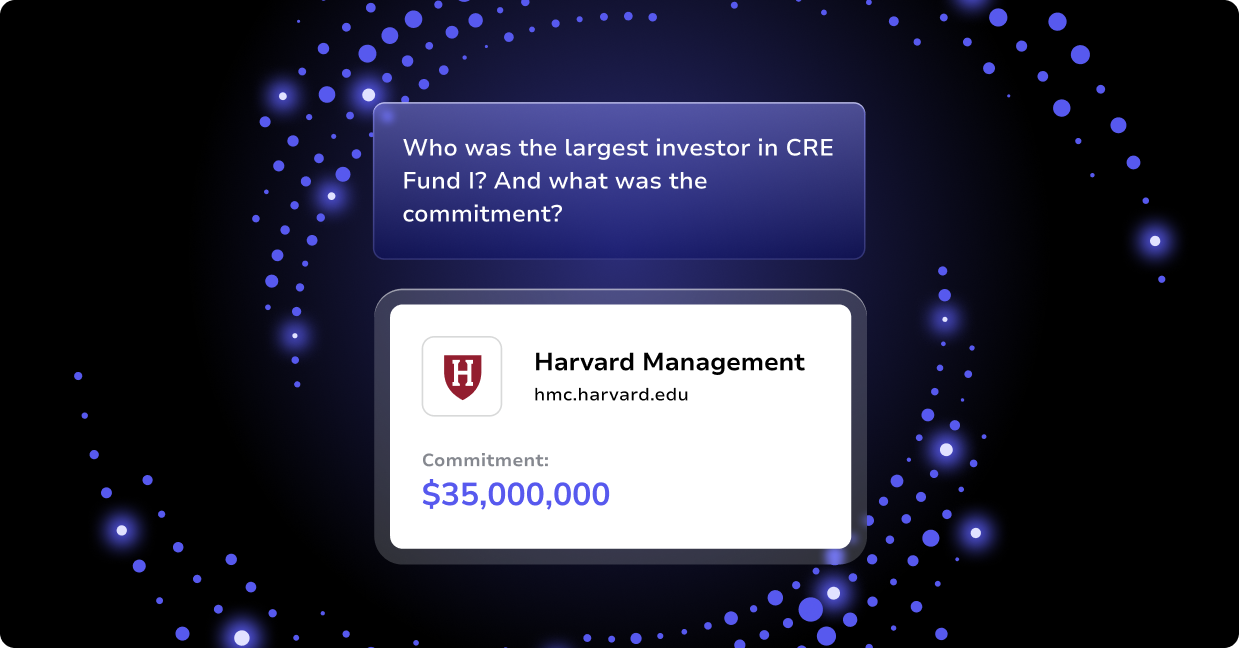Perhaps more so than in any other industry, decision-making is critical to success in private equity and venture capital. Make the right deal flow decisions and you can achieve outstanding results. Make the wrong ones and the losses can be just as significant.
But how do you arrive at “right” and avoid “wrong”?
When it comes to deal flow and deal management, it is critical that you have the infrastructure and resources in place to make well-informed decisions.
Deal Management: Addressing the Key Components
Effective deal management requires that you have certain key elements to guide your strategy. First, you need to have current and accurate data. Without it, you are essentially operating blindfolded.
And while the data you uncover through your own efforts is very valuable, it is vital that you also have a way to obtain supplemental data and bring it into your deliberations. Tools like Pitchbook, DataFox, and SourceScrub can be extremely useful in this regard.
You also need to have firm-wide visibility into your pipeline. If everyone in your organization is simply assuming that deals are progressing as expected, with no easy way to confirm or challenge that assumption, that is a recipe for failure.
In addition, pipeline visibility is crucial when it comes to the timeliness of task completion. If a particularly important action isn’t taken when it should be because the right people did not “have eyes on” the flow, that failure can hurt your chances of closing a deal or, even if you do close the deal, keep you from maximizing the value of it.
Deal Flow and the Tech Stack: The Majority of Firms Are Looking to Improve
Blue Future Partners conducted a survey of early-stage venture capital funds about deal management technology and got insightful—if not entirely unexpected—results. They found that nearly 60% of respondents are motivated to update their technology stack in order to find more deals and improve their execution as they pursue those opportunities.
There are multiple reasons that this number is not surprising. For one thing, competition in the industry has gotten increasingly fierce as more firms come into an already crowded space.
This has forced firms to find new ways to differentiate themselves and their services.
How can they do that?
First and foremost, firms strive to increase their “intellectual capital” by hiring the industry’s best and brightest. But, of course, with new firms entering the market every day, the availability of top-notch talent has become much more limited.
Fortunately, second in importance only to industry expertise is advanced technology designed specifically to support deal management and related activities. Any firm can implement solutions like Altvia’s platform and other systems to dramatically improve its operations. And those systems are both intuitive and economical, especially in light of what they deliver.
The Capabilities Firms Are Looking for to Support Deal Management
Firms looking to gain or maintain a competitive advantage are typically seeking four important capabilities in the technology they implement:
- Real-time, secure access to a centralized database. When data is maintained in an outdated computer system—or worse yet, in spreadsheets stored somewhere on a network—accessing it can be anywhere from difficult to impossible. And that scenario greatly increases the chances that deal management decisions will be made either without looking at key pieces of information or only after too much effort has to be expended and, in some cases, a competitor with better technology has beat the firm to the punch.
- Prioritization of deal sources based on returns. Every firm has limited resources, and successful ones know that focusing those resources in certain areas pays the biggest dividends. But which deal sources are those? The right technology can help firms identify them and prioritize the time spent on them.
- Visibility into networking and communication efforts. Providing all the stakeholders in a firm with the ability to check on deal progress is very important. In addition to the reasons noted above, enhanced visibility enables firms to better leverage the insights of the people who can now check on deal flows. How many deals are lost in part because a firm’s full experience and expertise are not brought to bear on its challenges and opportunities?
- Supplemental data. There was a time when firms managed deals using only what they knew internally. That time is long gone. Firms today need to leverage every relevant scrap of data they can get their hands on to improve their odds of success. But, of course, simply opening the data floodgates is not useful. You need the data streams but also the deal management technology that enables you to ingest that information in an orderly manner and make sense of it.
With these components in place, your firm can be competitive in any situation.
Deal Management: It’s About Both Accelerating and Controlling Deal Flow
In the end, effective deal management is all about accelerating effective deals while still controlling the process.
At Altvia, we understand the role balance plays in achieving better returns. Consequently, we continually update and enhance our systems based on conversations with users and the insights they provide on how technology helps their firm perform better.
We also provide enlightening demonstrations of our systems so that firms understand how our product suite:
- Functions as a hub for internal and external stakeholders
- Enables better management of complex relationships
- Offers many integration opportunities that make connected systems more effective
- Incorporates insights from our team of industry veterans
In less than 30 minutes of talking with our experts, demo participants see the value of having the right deal management technology.




